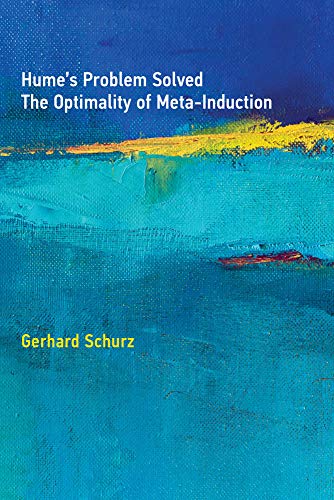All books / Book
Hume's Problem Solved: The Optimality of Meta-Induction (The MIT Press)

| Full title: | Hume's Problem Solved: The Optimality of Meta-Induction (The MIT Press) |
|---|---|
| ISBN: | 9780262039727 |
| ISBN 10: | 0262039729 |
| Authors: | Schurz, Gerhard |
| Publisher: | The MIT Press |
| Edition: | Illustrated |
| Num. pages: | 400 |
| Binding: | Hardcover |
| Language: | en |
| Published on: | 2019 |
Read the reviews and/or buy it on Amazon.com
Synopsis
A New Approach To Hume's Problem Of Induction That Justifies The Optimality Of Induction At The Level Of Meta-induction. Hume's Problem Of Justifying Induction Has Been Among Epistemology's Greatest Challenges For Centuries. In This Book, Gerhard Schurz Proposes A New Approach To Hume's Problem. Acknowledging The Force Of Hume's Arguments Against The Possibility Of A Noncircular Justification Of The Reliability Of Induction, Schurz Demonstrates Instead The Possibility Of A Noncircular Justification Of The Optimality Of Induction, Or, More Precisely, Of Meta-induction (the Application Of Induction To Competing Prediction Models). Drawing On Discoveries In Computational Learning Theory, Schurz Demonstrates That A Regret-based Learning Strategy, Attractivity-weighted Meta-induction, Is Predictively Optimal In All Possible Worlds Among All Prediction Methods Accessible To The Epistemic Agent. Moreover, The A Priori Justification Of Meta-induction Generates A Noncircular A Posteriori Justification Of Object Induction. Taken Together, These Two Results Provide A Noncircular Solution To Hume's Problem. Schurz Discusses The Philosophical Debate On The Problem Of Induction, Addressing All Major Attempts At A Solution To Hume's Problem And Describing Their Shortcomings; Presents A Series Of Theorems, Accompanied By A Description Of Computer Simulations Illustrating The Content Of These Theorems (with Proofs Presented In A Mathematical Appendix); And Defends, Refines, And Applies Core Insights Regarding The Optimality Of Meta-induction, Explaining Applications In Neighboring Disciplines Including Forecasting Sciences, Cognitive Science, Social Epistemology, And Generalized Evolution Theory. Finally, Schurz Generalizes The Method Of Optimality-based Justification To A New Strategy Of Justification In Epistemology, Arguing That Optimality Justifications Can Avoid The Problems Of Justificatory Circularity And Regress.